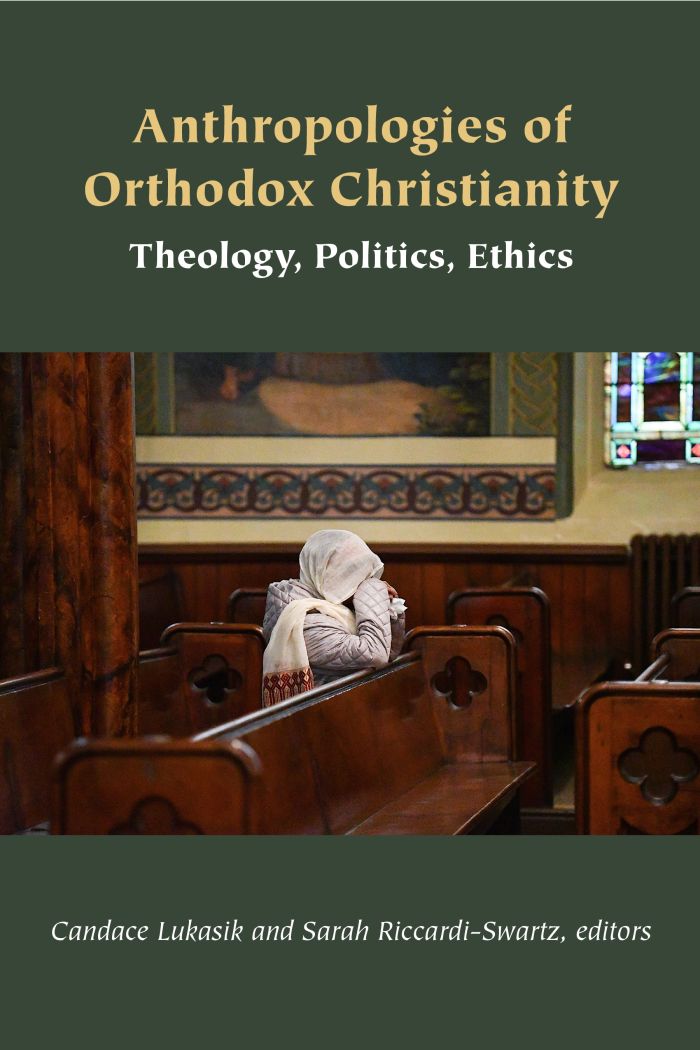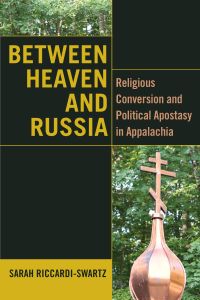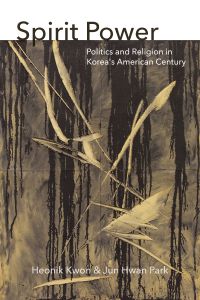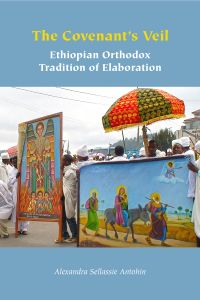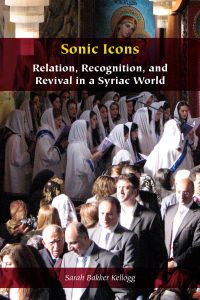Anthropologies of Orthodox Christianity
Theology, Politics, Ethics

This book can be opened with

Anthropologically explores the entanglement of theology and politics among contemporary Orthodox Christians
Much of the anthropological literature on Christianity tends to concentrate on Protestants and Catholics in the Global South. The contemporary scholarly interest in such communities descends from histories of missionization and colonization of these regions, as well as a sense of their theological kinship with the secularized visions of Western political and social life. Orthodox Christianity, however, has largely been rendered marginal in mainstream anthropological engagement because of its theological and social alterity from such Western anthropological traditions of knowledge production. Because of this, Orthodox Christian lifeworlds in and beyond the academy are created, contested, and transformed in relation to various “others,” whether they be religious, political, secular, or historical, with an eye toward a discursive opposition between modernity and Orthodoxy.
Each of the essays in Anthropologies of Orthodox Christianity texture a new trajectory in the study of this religious tradition that take seriously the theopolitical aspects of Orthodox life through anthropological inquiry. The volume engages and moves beyond the tension between populist and institutional framings of religion and critically addresses the ontological gap in both anthropology and theology as social, cultural, and geopolitical interest in Orthodox Christianity continues to expand and grow.
Anthropologies of Orthodox Christianity stands out for its concern with the integration of theological ideas with the practice of lived religion, which makes it a major intervention in the fast growing conversation about theology within anthropology (and about anthropology within theology). The contributions are uniformly excellent and the collection as a whole is a benchmark contribution to the study of Orthodox life.—Joel Robbins, author of Theology and the Anthropology of Christian Life
Offering a rich and layered analysis of diverse Orthodox Christian communities—their histories, theologies, and politics —this ambitious volume shows how Orthodox life worlds are created, contested, and transformed, particularly through encounters with various ‘others.’ It underscores the importance of engaging deeply with theology, ecclesiology, and liturgy for producing nuanced, context-sensitive scholarship and furthers the critical conversations that shape the study of global Christianity and religion more broadly.—Vlad Naumescu, Professor, Central European University
Angie Heo is an associate professor of the anthropology and sociology of religion at the University of Chicago Divinity School. She is the author of The Political Lives of Saints: Christian Muslim Mediation in Egypt (University of California Press, 2018).
Candace Lukasik (Edited By)
Candace Lukasik is an assistant professor of religion and faculty affiliate in anthropology and Middle Eastern cultures at Mississippi State University. She is the author of Martyrs and Migrants: Coptic Christians and the Persecution Politics of US Empire (NYU Press, 2025).
Sarah Riccardi-Swartz (Edited By)
Sarah Riccardi-Swartz is an assistant professor of religion and anthropology at Northeastern University. She is the author of Between Heaven and Russia: Religious Conversion and Political Authority in Appalachia (Fordham University Press, 2022).
Sonja Thomas (Foreword By)
Sonja Thomas is an associate professor of women’s, gender, and sexuality studies at Colby College. Her research examines the intersections of caste, race, gender, class, and religion in postcolonial India and the South Asian diaspora. She is the author of Privileged Minorities: Syrian Christianity, Gender, and Minority Rights in Postcolonial India. She has also written articles on education and Christian religious minorities in India, on South Asian American Christians, and on tap dance in the United States and globally. She is currently completing a manuscript on Indian missionary priests in the United States entitled Indians and Cowboys: Race, Caste, and Indian Missionary Priests in Rural America.
Foreword | vii
Sonja Thomas
Introduction: Thinking About Orthodox Christianity in an Anthropological Perspective | 1
Candace Lukasik and Sarah Riccardi-Swartz
PART I: LIVING THEOLOGY AND ANTHROPOLOGICAL THEORIES
Orthodoxy from the Outside: Palestinian Christian Kinship and the Evangelical Theology of Love | 33
Clayton Goodgame
Imperial Ecclesiologies and Ethnographic Imaginaries:
Situating Syriac Christianity in the Anthropology of Global Orthodoxy | 63
Sarah Bakker Kellogg
The Lives of Priests in the Coptic Imagination | 92
Aaron Michka
PART II: SOCIAL TRANSFORMATION AND ORTHODOX THEOLOGIES
Hagiographic Emplacement: St. Servatius, the Armenian
Community of Maastricht, and Oriental Orthodox Christians in Europe | 121
Christopher Sheklian
Dynamic Honor: How Ethiopian Orthodox Keber Mediates
the Secular, the Islamic, and the Religiously Plural | 154
John Dulin
The State of Grace: Old Believers’ Determinations
of Coreligiosity and Moral Life in the Days Between the Mysteries | 182
Amber Lee Silva
PART III: THEOLOGICAL ANXIETIES AND CULTURAL CONSTRUCTIONS
The Heresy of Eastern Papizm in Russian Orthodox Online Discourse | 215
Jacob Lassin
UFOs, Conspiracy, and American Eastern Orthodoxy: Narrative Performance of the “Patristic Mind” | 251
Robert C. Saler
Afterword | 274
Angie Heo
Acknowledgments | 281
List of Contributors | 283
Index | 287

